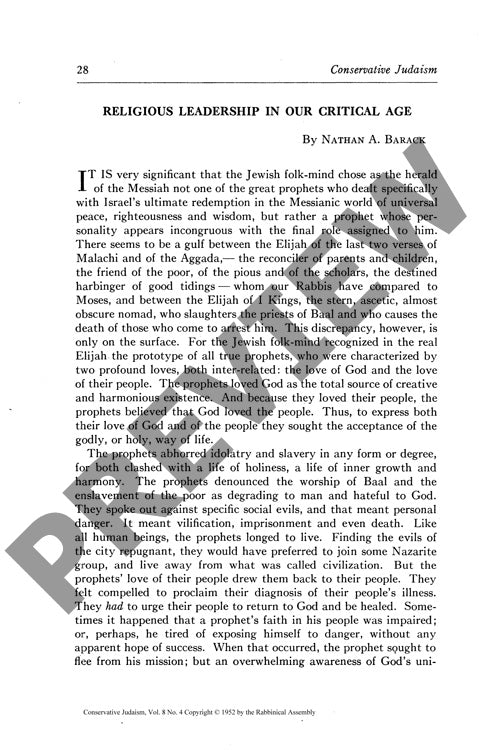Religious Leadership in Our Critical Age
Couldn't load pickup availability
The ancient prophet Elijah's model of moral courage holds urgent lessons for religious leaders confronting today's ethical crises. Through textual analysis of biblical and rabbinic sources, we find that the Jewish tradition's elevation of Elijah to messianic herald reflects deep recognition of essential prophetic qualities: profound love of God paired with love of humanity. Prophets throughout history overcame personal reluctance and mortal danger to pursue moral reform - a pattern that illuminates contemporary challenges. Modern manifestations of idolatry mirror ancient ones: the pursuit of profits over principles, endemic governmental corruption, and religious leaders' silence in the face of injustice. Our civilization faces a moral crisis rooted in rejection of divine authority, expressed through rampant materialism, political demagoguery, and militarism over peace-seeking. The evidence reveals that effective religious leadership requires prophetic courage to diagnose and denounce moral failings despite personal risk. Modern religious leaders, particularly Jewish ones, must choose between comfortable silence and prophetic responsibility. Authentic leadership demands fearless proclamation of moral truth, even at the cost of personal security and social acceptance.

More Information
-
Physical Description
-
Publication Information
Published 1952
ISBN
-
Publication Credits
Nathan Barack

